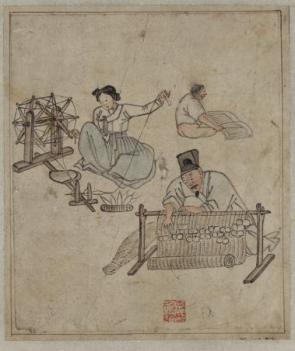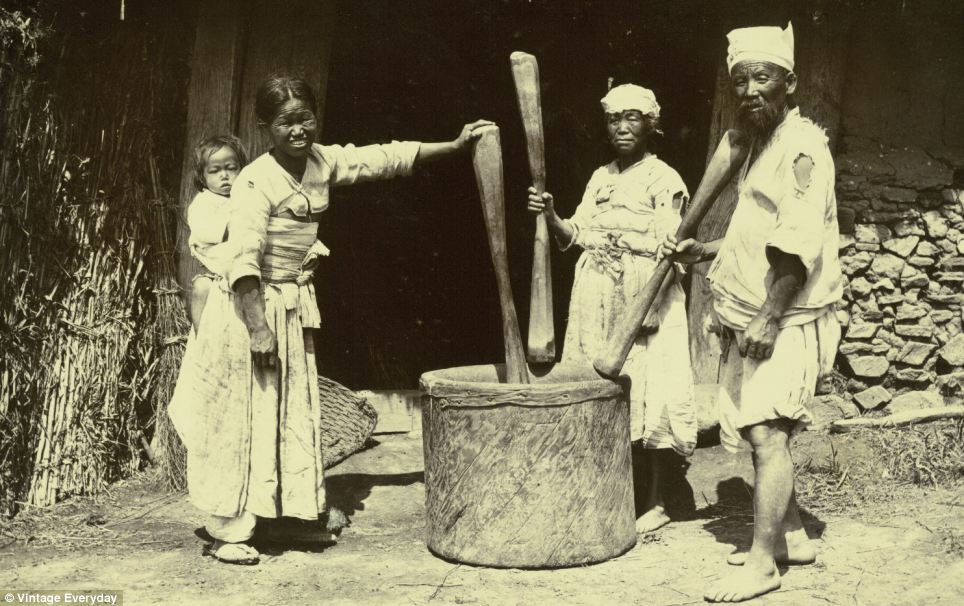This article was previously published as an essay for the SOAS course “Literary Traditions and Culture of Korea”. It was awarded with a distinction. It has been simplified and shortened for this blog post.

Painting of a Weaving Scene, by Kim Hong-do (1745-1806)
With the start of the Joseon Dynasty in 1392, Confucianism became the official state ideology that set up a strict class system and introduced gendered ethics. In the 17th and 18th centuries, people began to question the unethical treatment of slaves (nobi) and commoners promoted by Confucian ideals. As the hardships of the lower classes gained acknowledgement from those in the royal court, an influx in petitions by slave and commoner women were written. Significant changes in the Joseon legal system can be seen after 1730, when the state introduced a matrilineal law that provided the offspring of male slaves with commoner status. This began a slow route to the abolishment of slavery and heightened social awareness of difficulties slaves and commoners faced.
Continue reading “The Agency of Female Slaves in the Joseon Legal System”
